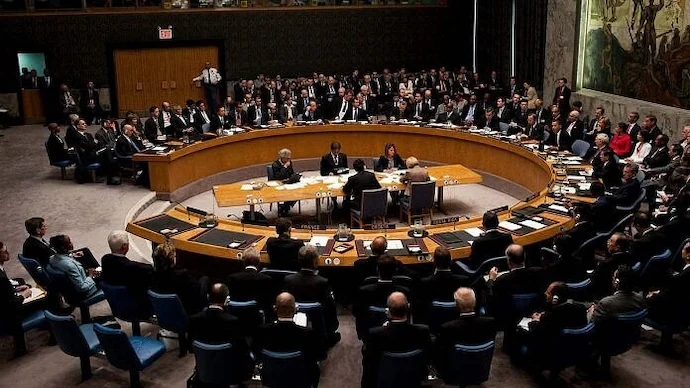A United Nations Security Council resolution calling for an immediate and permanent ceasefire in Gaza has failed after the United States exercised its veto power. The draft, co-sponsored by ten elected Council members—Algeria, Denmark, Greece, Guyana, Pakistan, Panama, South Korea, Sierra Leone, Slovenia, and Somalia—received 14 votes in favour. However, the single vote from the U.S. against it was enough to halt its adoption.
The proposal sought to enforce an unconditional ceasefire among all parties and demanded the release of hostages held by Hamas and other groups. It also addressed the worsening humanitarian conditions in Gaza, citing risks of famine and the near-total blockade of aid. The resolution called for unrestricted humanitarian access, the lifting of aid restrictions, and restoration of essential services across the enclave.
Despite overwhelming support, the U.S. rejected the resolution. Acting U.S. Representative Dorothy Shea said the text was unacceptable in its content and omissions. She criticized it for failing to condemn Hamas or demand its disarmament and withdrawal from Gaza. Shea added that Hamas had dismissed multiple ceasefire offers, including one proposed over the past weekend that would have included hostage releases and steps toward ending the conflict.
The veto comes amid ongoing mediation efforts by Egypt, Qatar, and the U.S. under a framework detailed in Resolution 2735, which outlines a phased ceasefire, full Israeli withdrawal from Gaza, prisoner exchanges, and long-term rebuilding plans. The U.S. maintains that any resolution must not be seen as rewarding Hamas, arguing it would risk further violence if the group remains in power.
Meanwhile, the situation on the ground grows increasingly dire. UN relief chief Tom Fletcher reported that Palestinians are being killed while trying to access food, and health services are collapsing. The U.S.-Israel-led aid distribution system, which bypasses established UN agencies, has drawn criticism for worsening the humanitarian emergency.
As the crisis deepens, international pressure mounts on the Security Council to find a resolution that addresses both humanitarian needs and security concerns without sidelining diplomacy or international law.

